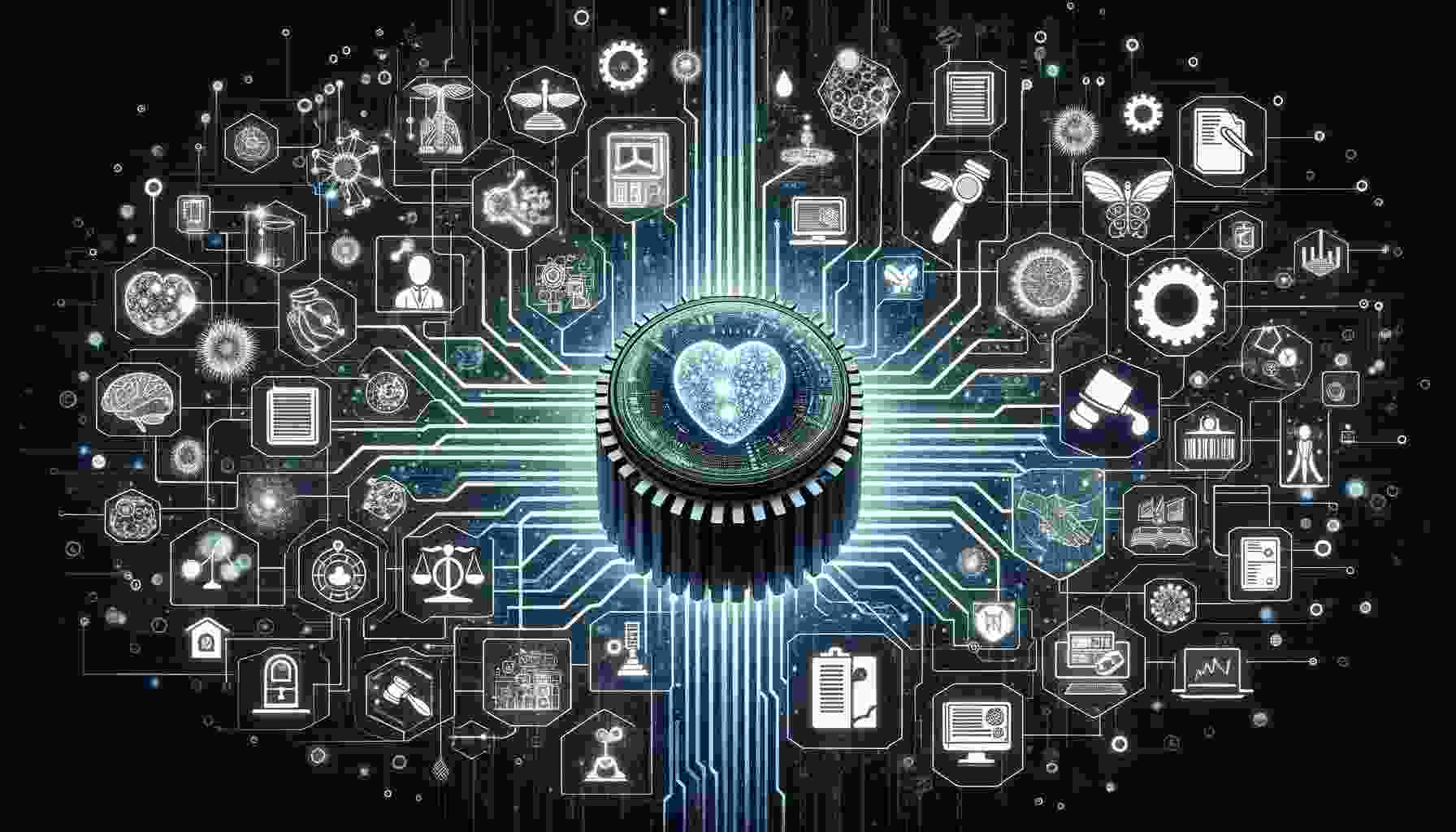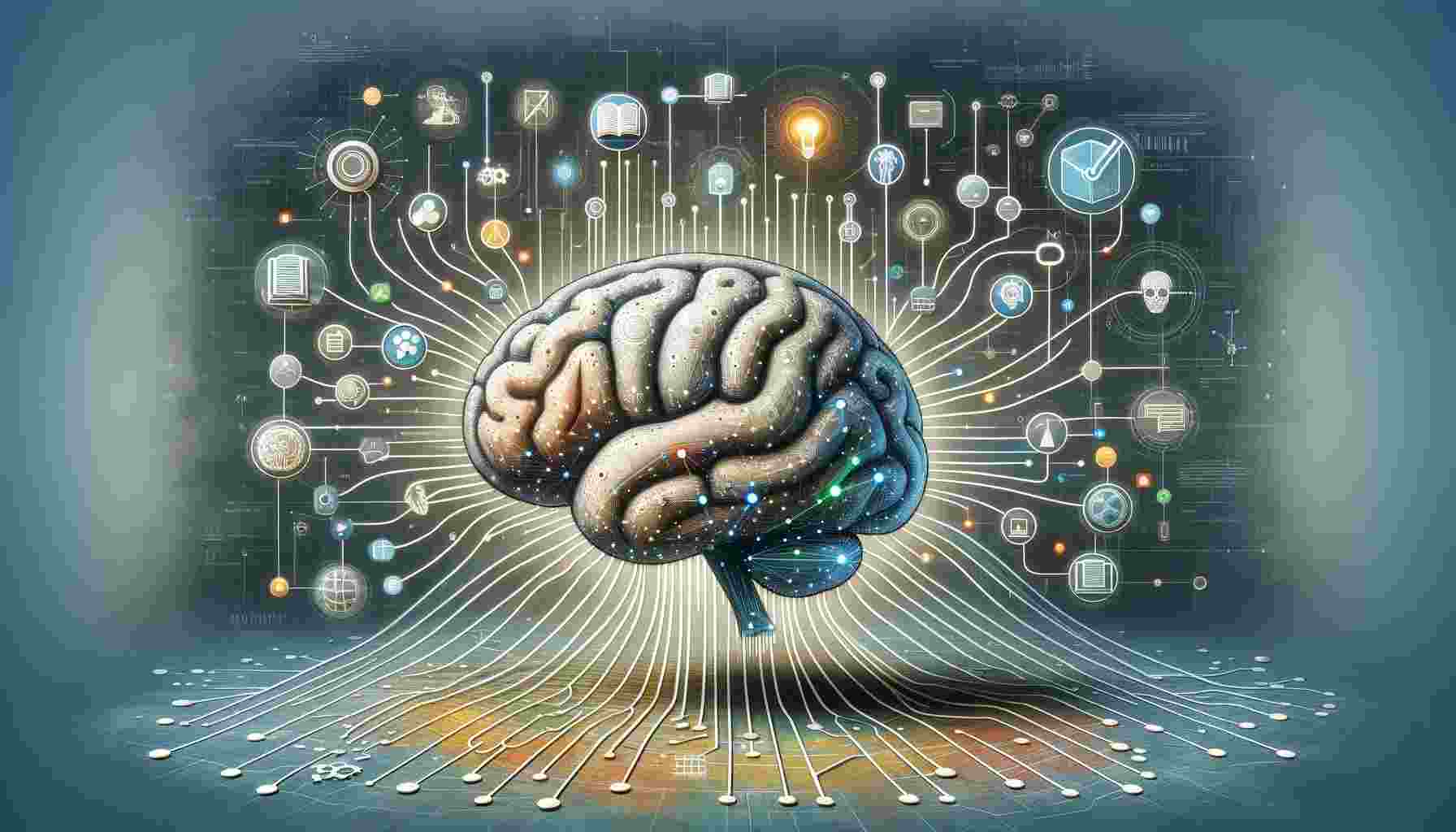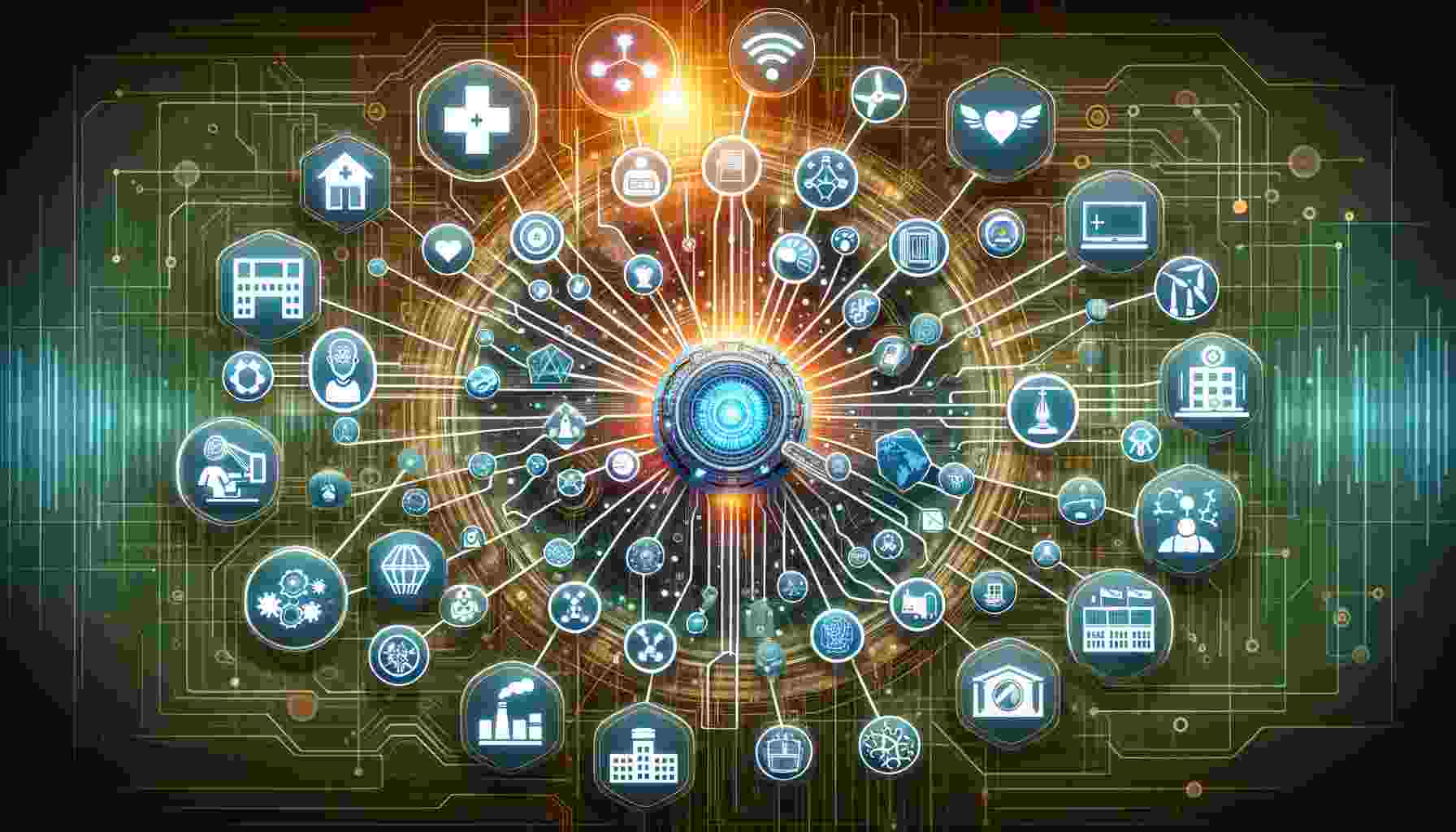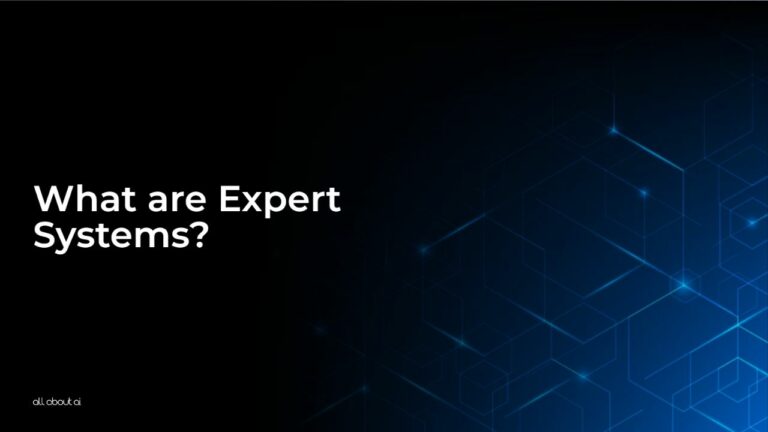Expert systems, a branch of artificial intelligence (AI), are designed to emulate the decision-making capabilities of human experts within specific domains. These systems leverage detailed knowledge bases and sophisticated inference engines to process and analyze information, offering solutions, guidance, and advice akin to that provided by a human expert.
Their development marked a significant step forward in the quest to apply AI in solving complex problems across various fields, including medicine, finance, and environmental management.
In this article, we will discuss “What are Expert Systems?” in detail, along with its key characteristics, working procedure, and everything you want to know about it. So don’t stop! Keep reading the article written by AI Experts at All About AI.
What are Expert Systems: How AI Becomes an Expert Just Like Us!
Imagine you have a super smart robot friend who is really good at certain things, like being a doctor, a banker, or even helping to take care of the Earth. This robot friend is a type of smart computer program we call an “expert system.” It’s part of a big family of smart technologies known as artificial intelligence, or AI for short. AI is like the brain for robots and computers, helping them think and make decisions like humans do.
Expert systems are special because they can think and make decisions in specific areas really well, almost like how a real doctor knows a lot about medicine or how a banker understands money. They do this by using a big book of knowledge that has lots of information about one subject. They also have a smart engine, kind of like a detective, that looks at information, asks questions, and figures out solutions or gives advice just like a human expert would.
The Evolution of Expert Systems:
After understanding the basic concept of “What is Expert Systems?” let’s get started by reviewing its evolution. Expert systems have undergone a significant evolution since their inception in the 1970s, transitioning from academic curiosity to practical tools across multiple industries.
Early Beginnings:
The development of expert systems was initially driven by the desire to capture and replicate the decision-making process of human experts in a computerized form. This period saw the creation of foundational systems such as DENDRAL, designed for chemical analysis, and MYCIN, which focused on diagnosing bacterial infections and recommending antibiotics.
Notable Milestones:
The success of these early systems demonstrated the potential of AI to replicate and even surpass human expertise in certain domains. It paved the way for the development of more sophisticated systems capable of addressing a wider range of complex problems.
Widespread Adoption:
Throughout the 1980s and 1990s, the application of expert systems expanded significantly, finding utility in legal reasoning, financial analysis, and strategic planning, among other areas. This era solidified their role as valuable tools in enhancing decision-making processes.
Continuous Evolution:
The integration of machine learning and big data analytics has marked the latest phase in the evolution of expert systems, broadening their capabilities and applications. Today’s systems not only replicate human expertise but also learn and adapt over time, offering even more powerful and flexible solutions.
How Expert Systems Work?
After explaining “What is Expert Systems?” it’s the time to understand how do they work. Expert systems are designed to provide expert advice and make decisions in various fields, from medical diagnosis to financial analysis.

Here’s how they function:
Knowledge Base Construction:
Expert systems are built around a comprehensive knowledge base that contains specific information and rules about its domain of expertise. This database is compiled from the expertise of human specialists, encapsulating their knowledge in a structured format that the system can use.
Inference Engine Mechanism:
At the heart of an expert system is the inference engine, a crucial component that applies logical rules to the knowledge base to deduce new information or make decisions. It simulates the reasoning process of human experts by interpreting and processing the knowledge.
User Interface for Interaction:
Expert systems come equipped with a user-friendly interface that allows users to input queries and receive advice or decisions. This interface is designed to be intuitive, enabling users to interact effectively with the system without needing specialized knowledge.
Explanation and Justification:
One distinctive feature of expert systems is their ability to explain the reasoning behind their conclusions. They can provide users with the steps and rules applied during the decision-making process, offering transparency and building trust in the system’s capabilities.
Continuous Learning and Update:
While traditional expert systems do not learn from new data automatically, ongoing efforts are made to update their knowledge bases and rule sets manually to reflect new insights, discoveries, or changes in their field of expertise, ensuring their advice remains relevant and accurate.
Key Characteristics of Expert Systems:
Expert systems are distinguished by their ability to simulate the analytical capabilities of human experts.
High Performance:
They efficiently process vast amounts of data, providing solutions more rapidly than humanly possible in many cases.
Reliability:
Expert systems offer consistent and error-free decisions based on the logic and data encoded in their knowledge bases.
Adaptability:
They can be continually updated and expanded with new knowledge, allowing them to adapt to changing information and conditions.
User-Friendly Interface:
The systems are designed with interfaces that are intuitive and easy to use, making specialized knowledge accessible to non-experts.
Explainability:
By offering explanations for their decisions, expert systems demystify AI’s decision-making process, fostering user trust and understanding.
Components of an Expert System:
In this article, we will not only define “What is an Expert System?” but also define its components, because the effectiveness of an expert system hinges on the seamless integration of its components.

Knowledge Base:
Acts as the brain of the expert system, containing all the domain-specific knowledge and information needed to make decisions.
Inference Engine:
This is the logical reasoning mechanism that applies rules to the knowledge base to derive conclusions or make decisions.
User Interface:
Serves as the bridge between the user and the expert system, enabling easy communication and interaction.
Knowledge Acquisition Facility:
Tools and methodologies for updating the knowledge base are critical for maintaining the relevance and accuracy of the system.
Explanation Facility:
Provides detailed explanations of the reasoning process, enhancing the system’s transparency and user trust.
Comparing Expert and Conventional Systems:
Expert systems and conventional systems differ fundamentally in their approach to processing information and solving problems.
Problem-Solving:
Unlike conventional systems that rely on predetermined algorithms for processing, expert systems use heuristic approaches to mimic human problem-solving, making them better suited for dealing with complex and poorly structured problems.
Knowledge Encoding:
Expert systems encode knowledge in a flexible and dynamic manner, using rules and heuristics, which allows for more nuanced decision-making compared to the rigid data structures of conventional systems.
Adaptability:
The ability to update and expand the knowledge base of expert systems makes them more adaptable to new information and changing conditions than conventional systems.
Complexity Handling:
Expert systems are designed to manage and interpret complex data and situations, utilizing logical deduction and inference in ways that conventional systems cannot.
Human Expertise vs. Expert Systems:
Now that we know “What is Expert Systems?” it’s the time to draw the comparison between human expertise and expert systems to understand the strengths and limitations of each better.
Accessibility:
Expert systems make specialized knowledge available around the clock, overcoming the physical and temporal limitations associated with human experts.
Consistency:
They provide uniform and bias-free decisions, whereas human decision-making can be inconsistent due to various factors, including fatigue and cognitive biases.
Comprehensive Analysis:
Expert systems can analyze larger datasets than human experts, offering insights that might not be immediately apparent to humans.
Lack of Intuition:
Despite their analytical capabilities, expert systems cannot replicate the intuitive and creative problem-solving abilities of humans, which can be crucial in certain contexts.
Applications of Expert Systems in Various Industries:
The versatility of expert systems is evident in their wide range of applications across different sectors.

Healthcare:
From diagnosing diseases to suggesting treatment plans, expert systems play a crucial role in supporting medical professionals and improving patient outcomes.
Finance:
They are used for fraud detection, investment analysis, and risk management, enhancing the efficiency and security of financial operations.
Manufacturing:
In manufacturing, expert systems contribute to quality control, production planning, and fault diagnosis, optimizing production processes and reducing downtime.
Environmental Science:
Expert systems assist in monitoring environmental conditions, predicting natural disasters, and managing natural resources, supporting sustainable environmental management practices.
Education:
They provide personalized learning experiences and tutoring, adapting to individual learners’ needs and enhancing educational outcomes.
Customer Service:
Expert systems offer automated support and personalized advice, improving customer service and satisfaction.
Legal Sector:
They assist in legal research and case analysis, streamlining legal processes and enhancing access to legal information.
Advantages of Expert Systems:
The benefits of expert systems extend across efficiency, accuracy, and decision-making.
- Accuracy: Expert systems analyze data with precision, offering accurate solutions to complex problems.
- Cost-Efficiency: By automating tasks that traditionally require human expertise, expert systems reduce operational costs and increase efficiency.
- Availability: They provide continuous access to expert-level analysis and advice, enhancing decision-making processes.
- Consistency: Expert systems ensure consistent decision-making, reducing the likelihood of human error.
- Scalability: The flexibility of expert systems allows them to be customized and scaled to meet the evolving needs of different industries.
Challenges of Expert Systems:
Despite their advantages, expert systems face several challenges that must be addressed to maximize their potential.
- Complex Development: The creation of a comprehensive and accurate knowledge base is a time-consuming and resource-intensive process.
- Maintenance: Keeping the system up-to-date with the latest knowledge and information requires ongoing effort and resources.
- Lack of Intuition: Expert systems cannot replicate the nuanced understanding and creative problem-solving capabilities of human experts.
- Ethical Considerations: The use of expert systems in decision-making processes raises ethical questions, particularly in scenarios involving moral judgments.
Future Prospects of Expert Systems:
After understanding “What is Expert Systems?” it’s the time to review its future prospect, which consist of nothing but continuous improvement and expansion.

Integration with Machine Learning:
Combining expert systems with machine learning algorithms promises to enhance their learning capabilities and adaptability.
Expanding Domains:
The application of expert systems is expected to extend into new industries and areas, further demonstrating their versatility and impact.
Enhanced User Experience:
Ongoing efforts to improve user interfaces will make expert systems more intuitive and accessible to a broader audience.
Greater Autonomy:
Future developments aim to increase the autonomy of expert systems, enabling them to make more independent decisions.
Ethical AI:
Addressing ethical considerations in the development and deployment of expert systems is crucial to ensure their responsible and beneficial use.
Want to Read More? Explore These AI Glossaries!
Immerse yourself in the realm of artificial intelligence through our meticulously assembled glossaries. No matter your skill level, there’s always something exciting to uncover!
- What is Semantics?: it refers to the process of understanding and interpreting the meaning of data.
- What is Semantic Search?: It represents a sophisticated aspect of search engines, where the focus shifts from keywords to the intent and contextual meaning behind user queries.
- What is Semi Structured Data?: It represents a blend of structured and unstructured data, containing some organizational properties without adhering to a strict schema.
- What is Sensor Fusion?: It is a vital concept in artificial intelligence (AI), which refers to the integration of sensory data from multiple sources to produce more accurate, reliable, and comprehensive information than what could be achieved by a single sensor alone.
- What is Sentiment Analysis?: It is a crucial technique in Artificial Intelligence (AI) that serves to understand people’s emotions, opinions, and attitudes expressed in text.
FAQs
Here are some of the most commonly asked questions other than “What is Expert Systems?”
What is the difference between a dialogue system and a chatbot?
What are 3 examples of dialogue systems?
What makes a good dialogue system?
What is the dialogue system architecture?
Conclusion:
Expert systems and dialogue systems represent significant advancements in the field of artificial intelligence, offering innovative solutions across a broad spectrum of industries. While expert systems emulate the decision-making abilities of human experts in specific domains, dialogue systems provide a platform for natural language communication, enhancing user interaction and service automation.
In this article, we have thoroughly discussed “What are Expert Systems?” But this is not the only term we have defined. To understand more AI-related concepts and terminologies, check out more articles in our AI Lexicon Guide.





